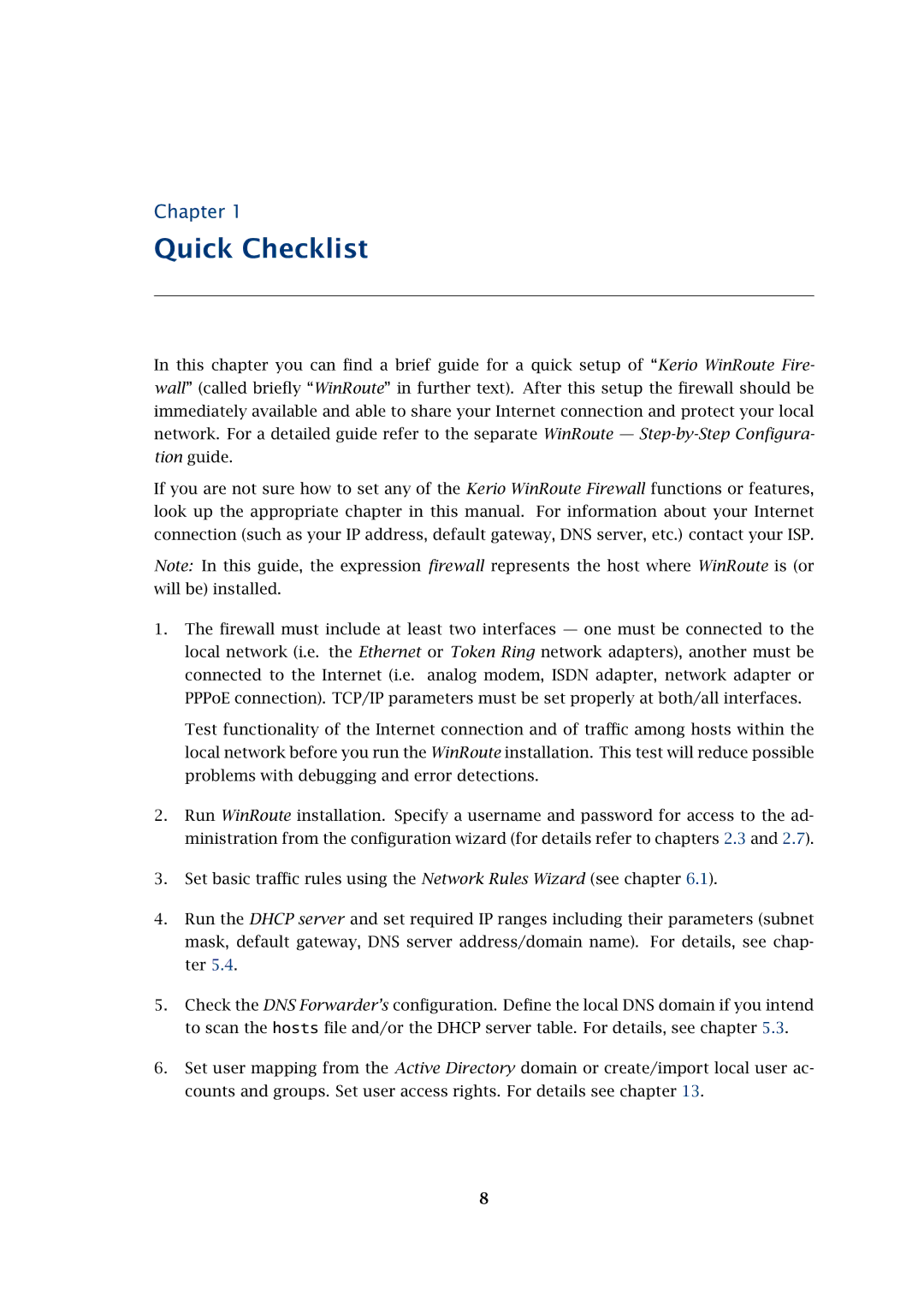Chapter 1
Quick Checklist
In this chapter you can find a brief guide for a quick setup of “Kerio WinRoute Fire- wall” (called briefly “WinRoute” in further text). After this setup the firewall should be immediately available and able to share your Internet connection and protect your local network. For a detailed guide refer to the separate WinRoute —
If you are not sure how to set any of the Kerio WinRoute Firewall functions or features, look up the appropriate chapter in this manual. For information about your Internet connection (such as your IP address, default gateway, DNS server, etc.) contact your ISP.
Note: In this guide, the expression firewall represents the host where WinRoute is (or will be) installed.
1.The firewall must include at least two interfaces — one must be connected to the local network (i.e. the Ethernet or Token Ring network adapters), another must be connected to the Internet (i.e. analog modem, ISDN adapter, network adapter or PPPoE connection). TCP/IP parameters must be set properly at both/all interfaces.
Test functionality of the Internet connection and of traffic among hosts within the local network before you run the WinRoute installation. This test will reduce possible problems with debugging and error detections.
2.Run WinRoute installation. Specify a username and password for access to the ad- ministration from the configuration wizard (for details refer to chapters 2.3 and 2.7).
3.Set basic traffic rules using the Network Rules Wizard (see chapter 6.1).
4.Run the DHCP server and set required IP ranges including their parameters (subnet mask, default gateway, DNS server address/domain name). For details, see chap- ter 5.4.
5.Check the DNS Forwarder’s configuration. Define the local DNS domain if you intend to scan the hosts file and/or the DHCP server table. For details, see chapter 5.3.
6.Set user mapping from the Active Directory domain or create/import local user ac- counts and groups. Set user access rights. For details see chapter 13.
8
